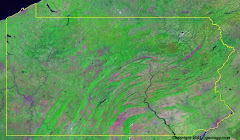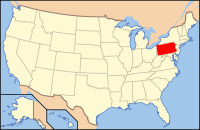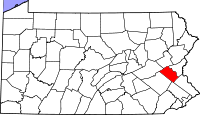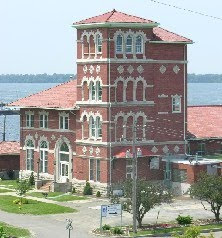I recently became acquainted with the term "Heritage Language." I don't know if there is one official definition of the term. Some online articles refer to it as a language spoken at home (other than English) by residents of the United States.
I wonder if the term can also refer to an individual's family's ancestral language, even if it's not spoken in their home or hasn't been for generations. There are many families in the Lehigh Valley who have a heritage language, but don’t speak it on a daily basis at home, e.g. Pennsylvania German, Ukrainian, Yiddish, etc.
I feel that we suffer loss when we lose the ability to understand or speak our heritage language. Sayings, lullabies, prayers, nursery rhymes, jokes in that language are forgotten. The wisdom contained in these word may have been passed down in our families for hundreds, or even thousands of years.
When you move to a new place, you learn the language in school or at work…but your teachers and co-workers will not sing you lullabies or chant silly childish nursery rhymes to you in the new language. The children who forget their ancestral language will have no lullabies to sing to their babies.
When you immigrate to a new place, your first priority is to learn the new language. It's necessary for education and employment, and in understanding and taking part in your new community. But it seems that from what I've read and heard, learning a new language is not hindered by retaining use of the "old" one - it shouldn't be a case of "either or."
Upon arriving at the new country, parents should try to learn the new language as quickly as possible, even if it's difficult for them. Then they can help their children to learn it, while encouraging them to value their heritage language. Feeling ashamed of their native language will give a child negative feelings and resentment about languages, instead of pleasure.
Children learn English so much more easily than their parents and forget the old language so quickly that it's hard for them to have a conversation together. And with their grandparents, it may be impossible!
Parents can convey a love of languages to their child. Languages can be fascinating - with each one you can view life and express yourself in subtly different ways. It's like painting - you can create shades of meaning with colors.
Children child can feel excitement about learning a new language if they treasure the "old" one and realize that woven in the words of prayers and songs are connections to years of their family's love and wisdom that is passed down to them.
When children understand that language is a tool to express their feelings, they may be happy to add a new "tool," and interested in the differences between the two. It's fun to express yourself in new ways!
A language is something to be treasured during an entire lifetime, and may bring unexpected pleasure in later years. A person who comes across something in their ancestral language - a poem or prayer, a saying or a song - that they hadn’t heard since childhood may rediscover buried emotions.
Many Pennsylvania German people I know in the Lehigh Valley are still fluent in their language 350 years after their families immigrated to America! This contrasts with families who came to the U.S. during the 1900s - most of them seem to have completely forgotten their ancestral language. Pennsylvania German people appreciate the fact that there are things said in "the dialect" that don't translate well into English. Many jokes are funny in "Dutch" but fall flat in English. The entonation of the voice adds an interesting layer of feeling in Pennsylvania German.
It is a sad fact that prejudice against Germans during World War I and II caused parents during those years to discourage their children from learning "the dialect." Many of these children in the Lehigh Valley area, now in their "senior" years, can understand the dialect, but not speak it. This will be the last generation it is spoken in many of these families.
People who have come here not knowing how to read and write the old language find it even harder to pass down the language through the generations. There are many cases where the immigrants speak a dialect which is not the standard written language of that country. In Italy and many other places there are local dialects that are not written.
This was also true for the Pennsylvania Germans, who did not speak the same dialect as the one that books and hymns were written in. There are no Bibles or songbooks in your language pass down. Also, many people who've immigrated, especially up to the early 1900s just never had the opportunity to learn to read and write in their "old" country.
My heritage is primarily German. Unfortunately, I did not learn any German growing up. My parents only spoke English, and my grandparents were not alive. I am sad that I didn't have a chance to hear it spoken, or learn some lullabies or sayings. Maybe that's why I encourage immigrants to value their parents' ancestral language.
I found an online entry about a book on heritage languages. I don't know any more about the book than the quote below, which was copied from this web site.
http://www.languagebooks.com/books/heritage_language_development.html
Heritage Language Development Edited by Stephen D. Krashen, Lucy Tse and Jeff McQuillan
"Most people think that immigrants resist giving up their heritage or family language. Just the opposite is true: Heritage languages are lost rapidly, victims of language shift, a powerful process that favors the language of the new country over the language of the family. The papers in this volume argue that heritage language development, in addition to full development of the language of the country, is an excellent investment, both for the individual and for society. Heritage language development can lead to academic and economic benefits, can be an important part of identity formation, and enables the heritage language speaker to profit from deeper contact with family, community and the country of origin. Other sections discuss parental support for heritage language development, and how heritage languages can be effectively (and easily) fostered."
I assume that this quote is taken from the book or is written by the editors of the book. I would appreciate any comments about people's experiences, feelings, or knowledge of this subject.





